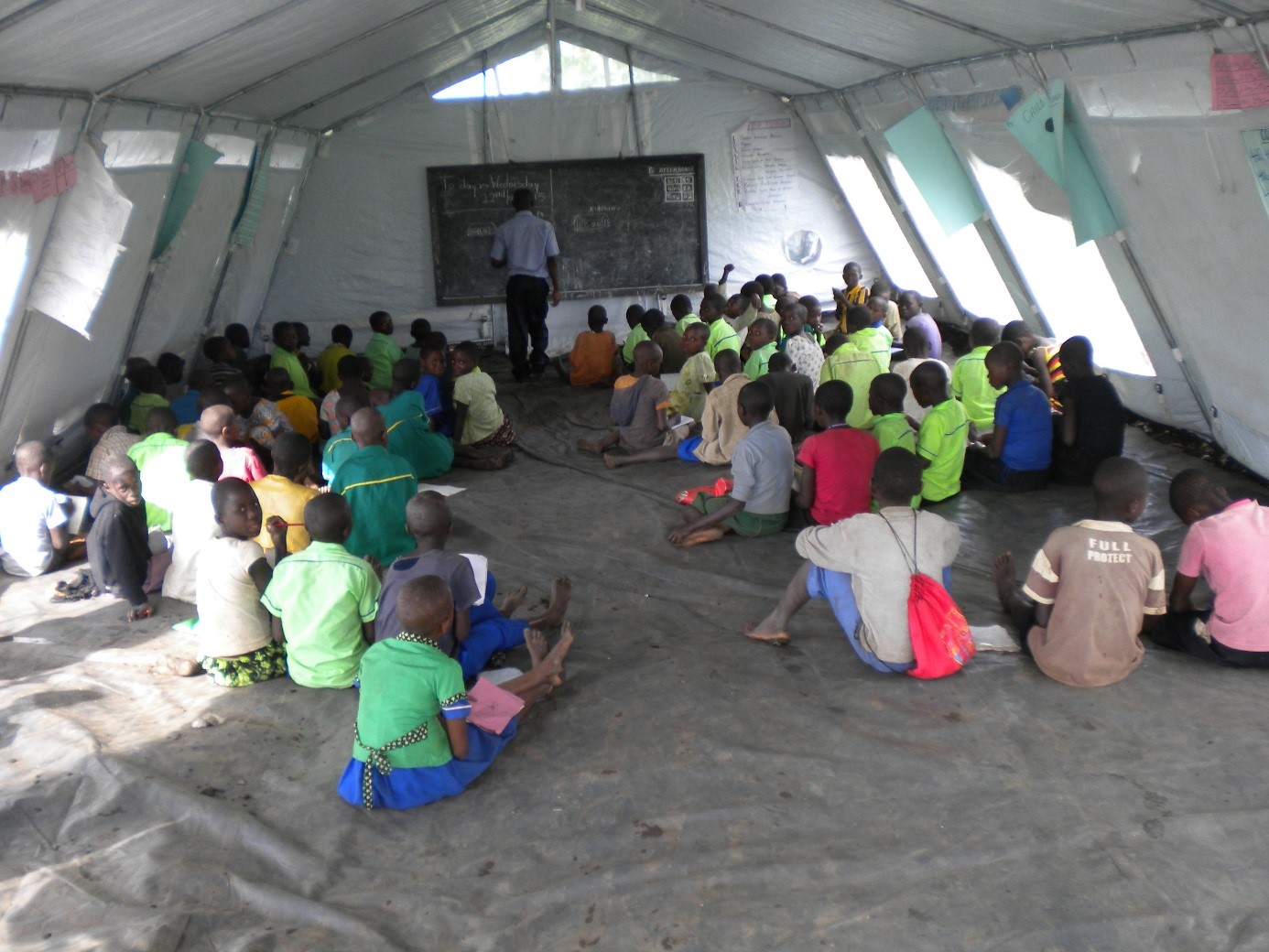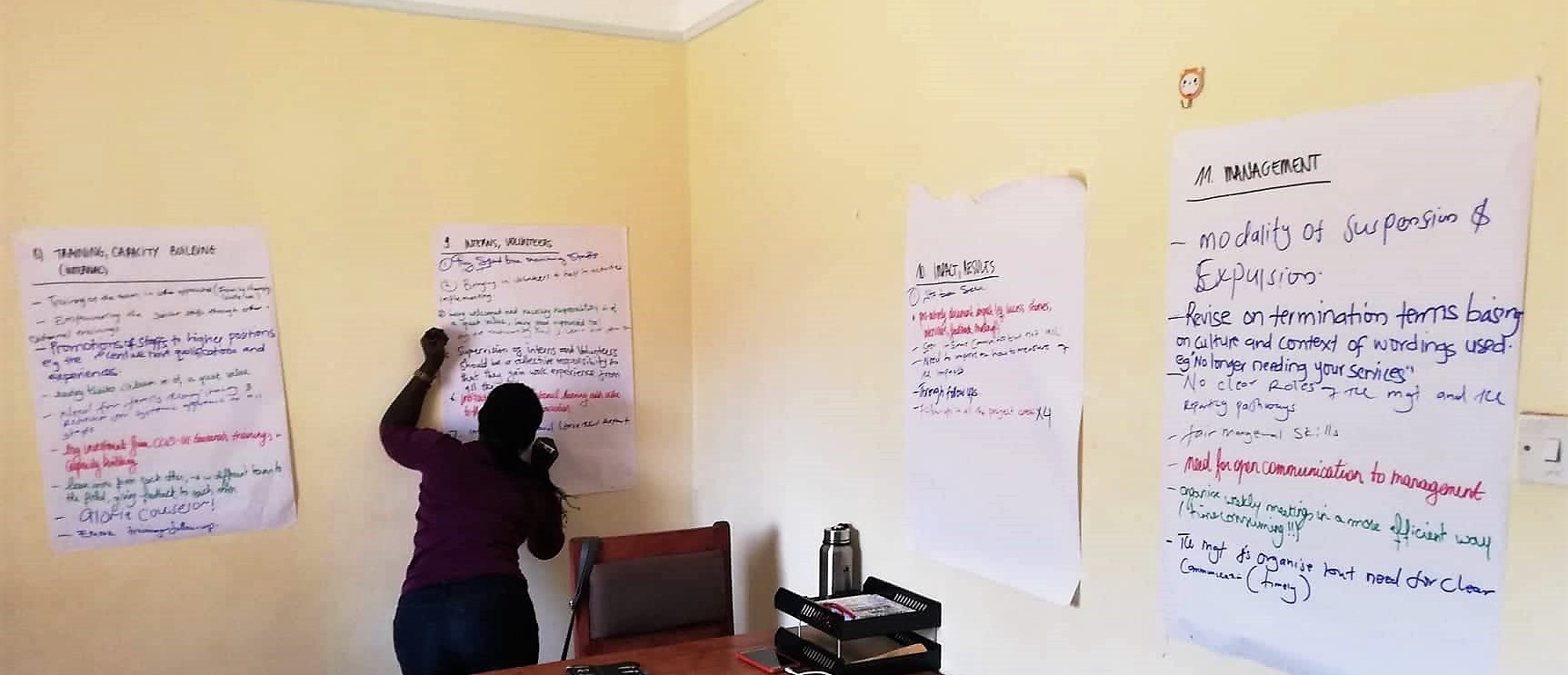RESEARCH ON THE REALITIES AND MEANINGS OF EDUCATION IN HUMANITARIAN CRISIS AND ENCAMPMENT
Country
Uganda
01-10-2013 - 30-09-2017
VLADOC (VLIR-UOS)
Background to the study
In recent decennia, international attention to education increased. More and more it has been accentuated that the Education for All ‘EFA’ goal will not be reached if emergency / crisis situations are left aside (Middtun, 2005; UNESCO, 2011). This as such was underscored by the 2011 EFA-report which noted how children growing up in situations of conflict and displacement account for 42 percent (or 28 million) of the world’s out-of-school population (UNESCO, 2011) and hence a particular target group of international educational assistance lives in refugee camps. While the EFA-goal originates in a rights-driven discourse, seeing education as a basic human right and an intrinsic good, international actors have also been putting forward more specific arguments so as the convince donors and public on why education is needed in the particularity of contexts of crisis and displacement. For instance, it is stated that school assists’ war-affected children and communities in coping with the consequences of armed conflict and displacement as it strengthens their well-being by restoring normalcy and stability (Sommers, 1999; Aguilar & Retamal, 2008). Furthermore, it has also been argued that, on the longer term, school prepares ‘the future generation’ to rebuild a (war-torn) society (Pigozzi, 1999; Davies, 2010) or to integrate themselves into the new host-society (Dryden-Peterson & Hovil, 2004; Chelpi-den Hamer, 2010) - or in more popular terms, to avoid a so-called lost generation to grow up. Underlying the international community’s attention to education in situations of crisis is thus a certain understanding of the role of education and how it can deal with contexts of crisis, both on the short- and the long-term. Thereby, it should however be remarked that, given the fact that many children are up till now still deprived of education - or at least miss many elements to acquire a proper quality standard of education - the way education’s role is framed in the first place concerns what education in crisis ought to be (rather then is) (Dicum, 2008; Bromley & Andina, 2010).
Up till now very little studies have investigated how war-affected children and communities themselves perceive of education in these conditions of crisis; or, more especially, how their meaning-making of education navigates between what they perceive to be education’s ideal role and the day-to-day realities in which education is realized. As such this research aims at an in-depth investigation of how war-affected pupils and their parents make sense of education’s role in their day-to-day reality of living in crisis and more particularly, encampment.
Up till now very little studies have investigated how war-affected children and communities themselves perceive of education in these conditions of crisis; or, more especially, how their meaning-making of education navigates between what they perceive to be education’s ideal role and the day-to-day realities in which education is realized. As such this research aims at an in-depth investigation of how war-affected pupils and their parents make sense of education’s role in their day-to-day reality of living in crisis and more particularly, encampment.
SOCIAL CONTEXT
A five month-field study has from February till June 2015 been conducted in a Congolese refugee camp in Western-Uganda, Kyangwali Refugee Settlement. Participant observations of a selection of classrooms have been combined with in-depth consecutive interviews with different refugee families. In Kyangwali Refugee Settlement approximately 25,000 Congolese refugees are hosted by the Ugandan government under the auspice of UNHCR and supported by different NGO’s. The first refugees started to arrive in the camp in 1996, and up till today new refugees keep arriving. In the settlement, there are six primary schools and one secondary school. The education system in the settlement is informed by UNHCR’s ‘Uganda Strategy for Refugee Education’ (UNHCR, 2013) and all schools follow the Ugandan curriculum. The management of education is outsourced to ‘Action Africa Help International’ (AAH-I) and it is primarily this organization who keeps track of the education system, employs and supervises teachers, divides scholastic materials, organizes training days and sensitization activities ect.
As much as it might be noted that this camp might seem not to correspond closely to the image of a crisis - as it is long established and some Congolese pupils are even born inside the camp - this place can nevertheless be seen as exemplar for what education during humanitarian crisis might look like. As education is de facto a long-term endeavor, which moreover also informs the particular focus of the need for education in crisis situations, it is interesting to see how this functions within the complexities of a protracted refugee situation caused by different (i.e., both older and recent) influxes of refugees. Even if that doesn’t mean that the particularity of this case could be generalized to other context of crisis, it could nevertheless serve as ‘a key to intelligibility’ (Pandolfi, 2010), an opportunity to learn about contextualized meanings of education in crisis (Stake, 2000) that can also inform a further reflection on (what could be at stake in) other context of crisis.
As much as it might be noted that this camp might seem not to correspond closely to the image of a crisis - as it is long established and some Congolese pupils are even born inside the camp - this place can nevertheless be seen as exemplar for what education during humanitarian crisis might look like. As education is de facto a long-term endeavor, which moreover also informs the particular focus of the need for education in crisis situations, it is interesting to see how this functions within the complexities of a protracted refugee situation caused by different (i.e., both older and recent) influxes of refugees. Even if that doesn’t mean that the particularity of this case could be generalized to other context of crisis, it could nevertheless serve as ‘a key to intelligibility’ (Pandolfi, 2010), an opportunity to learn about contextualized meanings of education in crisis (Stake, 2000) that can also inform a further reflection on (what could be at stake in) other context of crisis.

